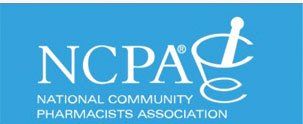Mon-Fri 9am - 6pm l Saturday 10am - 2pm l Sunday Closed
Non-Prescription Sleeping Aids
Sleepless nights can sound not-so-serious to many who haven’t experienced them first-hand. But anyone who has the experience will know how cruel it can be. The health effects of sleep deprivation are far reaching from memory loss to weight fluctuations to weakened immunity, let alone cranky eyes and short-temper. Research shows that adults need an average of 7-9 hours of sleep a night for optimal functionality. Here are several sleep aids that you can try without prescription, but keep in mind that it is still important to consult a doctor beforehand since some of them might interact with your current medications, and second, sleeping difficulties on a regular basis (called insomnia) can be a sign of underlying diseases including depression, heart or lung disease, diabetes, or sleep apnea. Whether prescribed or store-bought, sleeping aids are always more effective when used less often.
1st – Lifestyle changes
Non-medicinal approaches are always the first-line recommendation.
- Stick to regular sleep schedule and avoid daytime naps.
- Stay away from TVs, computers, and other little gadgets close to bedtime.
- Exercise: Exercise can promote sleep at night, but doing it too close to bedtime might rather make it difficult to fall asleep.
- Diet
- Avoid caffeinated food such as coffee, tea, soft drinks, and even chocolates.
- Sweets at night might cause fluctuation in blood sugar levels to disturb sleep quality.
- Some food known to promote sleep include tryptophan-rich food (whole grain crackers before bedtime), magnesium-rich food (legumes and seeds, almonds, dark leafy vegetables), and chamomile tea.
2nd – Dietary supplements
- Valerian – It is an herb long been used as remedy for insomnia. Take an hour before bedtime and continue 2-3 weeks to see the full effects. Exactly how it works is not well known, but valerian is known free from the grogginess or addictive effects common with other sleep aids. Side effects include mild indigestion, headache, dizziness, and fast heart beat. It should not be taken for more than 3 months at a time. Do not take it with other medicines such as antihistamines, sedatives, alcohol or if you have liver disease.
- Melatonin – It is a hormone naturally found in body. Serotonin, a neurotransmitter made in the brain, is converted into melatonin when light exposure decreases. Melatonin is known particularly useful when the sleep/wake cycle has been disturbed such as in night shifts or jet leg. It is usually taken 30 minutes before bedtime and has been shown safe when taken for up to 3 months. Common side effects include daytime sleepiness, headache, and dizziness.
- Kava – Kava is an anti-anxiety herb that may be helpful for anxiety-related insomnia. However, the United States Food and Drug Administration (FDA) has issued an advisory to consumers about the potential risk of severe liver injury from the use of kava-containing supplements. It also shows various drug interactions including Parkinson’s treatments, warfarin, and water pills. Although prescription is not required, it is always better to consult with your physician before taking Kava supplements.
3rd – Over-the-counter sleep medications
The main ingredient of over-the-counter (OTC) sleeping pills is antihistamine. Antihistamines are commonly taken for allergies, hay fever, and common cold symptoms. However, histamine, a chemical messenger in the brain, promotes wakefulness, so antihistamine has the effect of making some people sleepy. Common names you will find in pharmacy stores include:
- Diphenhydramine (Nytol, Sominex, Sleepinal, Compoz, Unisom sleep)
- Doxylamine (Unisom SleepTabs, Nighttime Sleep Aid)
OTC sleep aids are meant to be used for short term insomnia only. Sleep experts generally advise against their use because of side-effects, questions about effectiveness, and lack of long-term safety data. Side effects include;
- Drowsiness the next day (called hangover)
- Dizziness and forgetfulness
- Constipation and urinary retention
- Blurred vision
- Dry mouth and throat
These products are best avoided if you have glaucoma, prostate enlargement, or breathing problems such as chronic bronchitis or emphysema. Drug interactions include depression treatments and Parkinson’s treatments, so talk to your physician if you are taking one of these medications before using OTC sleep aids.
4th – General precautions about non-prescription sleep aids
- Most sleep aids are not recommended if you are pregnant or breast-feeding.
- Never drink alcohol while taking sleep aids. Alcohol can add up to the sedative effects, make the after-effects worse, and even cause death.
- Generally, sleep aids are not intended for use for longer than 2 weeks.
Source: http://altmedicine.about.com/cs/conditionsitoq/a/Insomnia.htm , http://www.mayoclinic.com/health/sleep-aids , http://www.helpguide.org/life/sleep_aids_medication_insomnia_treatment.htm
The post Non-Prescription Sleeping Aids appeared first on Kearney Park Compounding Pharmacy.


Hours of operations:
Mon-Fri 9am - 6pm l Saturday 10am - 2pm l Sunday Closed

Located @ 3224 Gus Thomasson Rd - Mesquite, TX 75150
HIPPA Privacy Policy - Serving the Entire DFW Area - Design & SEO by Ozment Media




